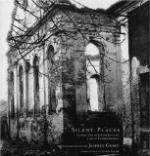“Shut up, Dick,” he commanded sharply. “Something in this.”
The young man stared at his companion an enigmatical instant, hesitating as to his reply.
“Oh, all right,” he replied at last with ostentatious indifference. “I don’t give a damn. Don’t sit up too late with the young lady. Good night!” He disappeared beneath his coverings, plainly disgruntled, as, for a greater or less period of time, he always was when even the least of his plans or points of view required readjustment.
Sam boiled tea, roasted a caribou steak, knelt and removed the girl’s damp foot-gear and replaced it with fresh. Then he held the cup to her lips, cut the tough meat for her with his hunting-knife, even fed her as though she were a child. He piled more wood on the fire, he wrapped about her shoulders one of the blankets with the hare-skin lining. Finally, when nothing more remained to be done, he lit his pipe and squatted on his heels close to her, lending her mood the sympathy of human silence.
She drank the tea, swallowed the food, permitted the change of her foot-gear, bent her shoulders to the blanket, all without the appearance of consciousness. The corners of her lips were bent firmly downward. Her eyes, fixed and exalted, gazed beyond the fire, beyond the dancing shadows, beyond the world. After a long interval she began to speak, low-voiced, in short disconnected sentences.
“My brothers seek the Ojibway, Jingoss. They will take him to Conjuror’s House. But Jingoss knows that my brothers come. He has been told by Ah-tek. He leaves the next sun. He is to travel to the west, to Peace River. Now his camp is five hours to the north. I know where it is. Jingoss has three dogs. He has much meat. He has no gun but the trade-gun. I have learned this. I come to tell it to my brothers.”
“Why, May-may-gwan?” inquired Sam, gently.
She turned on him a look of pride.
“Have you thought I had left you for him?” she asked. “I have learned these things.”
Sam uttered an exclamation of dismay.
“What?” she queried with a slow surprise.
“But he, the Chippewa,” Sam pointed out, “now he knows of our presence. He will aid Jingoss; he will warn him afresh to-night!”
May-may-gwan was again rapt in sad but ex alted contemplation of something beyond. She answered merely by a contemptuous gesture.
“But—” insisted Sam.
“I know,” she replied, with conviction.
Sam, troubled he knew not why, leaned forward to arrange the fire.
“How do you know, Little Sister?” he inquired, after some hesitation.
She answered by another weary gesture. Again Sam hesitated.
“Little Sister,” said he, at last, “I am an old man. I have seen many years pass. They have left me some wisdom. They have made my heart good to those who are in trouble. If it was not to return to your own people, then why did you go with Ah-tek this morning?”




